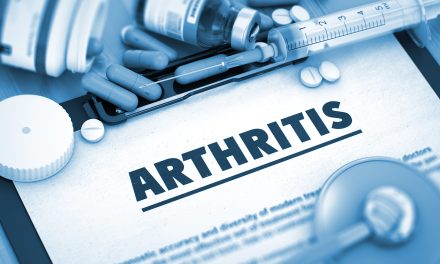Arthritis is a chronic condition characterized by joint pain, stiffness, and swelling, affecting millions worldwide. With no definitive cure, many individuals turn to natural supplements to alleviate symptoms and improve joint function. These supplements range from herbal extracts to vitamins and minerals, and they can support comprehensive collaborative care by reducing inflammation and providing the nutritional building blocks for healthy joints.

The role of natural supplements in managing arthritis cannot be overstated. Certain supplements have been backed by research to provide relief from arthritis symptoms potentially. Glucosamine and chondroitin are well-known for their joint-supporting properties, while omega-3 fatty acids in fish oil may help reduce joint inflammation. Additionally, herbal options like turmeric, containing curcumin, are favored for their anti-inflammatory effects. It is crucial to consider the quality and safety of supplements, ensuring they are sourced responsibly and produced to high standards.
Key Takeaways
- Natural supplements like glucosamine and omega-3 fatty acids may provide arthritis symptom relief.
- Herbal extracts, such as curcumin from turmeric, are valued for their anti-inflammatory properties.
- Ensuring the quality and safety of supplements is essential for effective joint care.
Understanding Arthritis

Arthritis encompasses a range of joint disorders characterized by inflammation, pain, and decreased mobility. This section delves into the various types of arthritis, their common symptoms, and the causes and risk factors.
Types of Arthritis
Osteoarthritis (OA) and rheumatoid arthritis (RA) are the most prevalent arthritis forms. Osteoarthritis involves wear-and-tear damage to the joint’s cartilage, the slippery tissue at the ends of bones in a joint. Rheumatoid arthritis, on the other hand, is an autoimmune disorder where the immune system attacks the lining of the joint capsule. This tough membrane encloses all the joint parts, leading to inflammation and swelling.
Common Symptoms
The symptoms of arthritis typically include joint pain, stiffness, and swelling. In osteoarthritis, these symptoms can manifest as a deep ache within the joint, worsening with movement. Rheumatoid arthritis often causes joint tenderness and morning stiffness lasting over thirty minutes. As RA progresses, it can cause the joints to deform and shift out of place.
Causes and Risk Factors
While the exact causes of arthritis can vary according to the type, common risk factors include age, family history, previous joint injuries, and obesity. In osteoarthritis, the deterioration of cartilage leads to bone grinding on bone, which causes pain and limited movement. Rheumatoid arthritis occurs when the body’s immune system targets joint linings, affecting not just cartilage but also ligaments and tendons. Factors like smoking and environmental exposures can also contribute to RA.
The Role of Natural Supplements
Natural supplements have gained attention in the realm of arthritis care, supported by research indicating potential benefits. These supplements serve as complementary agents in a holistic approach to managing arthritis symptoms.
Benefits of Supplements for Arthritis
Supplements offer a range of benefits for individuals with arthritis, primarily in terms of symptom management. Glucosamine and chondroitin, often found together in supplements, have been linked to improved joint health and reduced pain. Similarly, the anti-inflammatory properties of omega-3 fatty acids, found in fish oil, contribute to alleviating joint stiffness and discomfort. Curcumin, derived from turmeric, is another supplement noted for its significant anti-inflammatory effects, as highlighted by the Arthritis Foundation. Moreover, SAM-e has been recognized for its pain-relieving and anti-inflammatory properties, potentially benefiting those with osteoarthritis (OA) and rheumatoid arthritis (RA).
- Glucosamine and chondroitin May help rebuild cartilage and improve joint function.
- Omega-3 Fatty Acids: May reduce inflammation and lessen morning stiffness.
- Curcumin: Could reduce inflammatory markers and provide relief.
- SAM-e: Might act as a pain reliever and has anti-inflammatory qualities.
How Supplements Aid Arthritis Care
In arthritis care, supplements are employed to support the body’s natural healing mechanisms and mitigate symptoms. The addition of these supplements should align with a well-rounded treatment plan, involving medication, physical therapy, and lifestyle modifications. The Arthritis Foundation states that natural products like glucosamine and omega-3 fatty acids are backed by scientific research for their efficacy in treating OA and RA. However, it is imperative to consult healthcare providers before incorporating any supplements, as evidence suggests potential interactions with prescribed medications and the need to tailor supplement use to individual health profiles.
Top Supplements for Arthritis Relief
Arthritis can be a debilitating condition, but the right supplements may offer relief from inflammation and pain. This section explores specific supplements that have been identified for their potential benefits in arthritis management.
Curcumin
Curcumin is the active ingredient in turmeric and has potent anti-inflammatory properties. Research suggests it can help to relieve arthritis pain and reduce joint inflammation.
Omega-3 Fatty Acids
Omega-3 fatty acids are known for their anti-inflammatory effects. They are found in fish oil and flaxseed oil and can help in reducing pain associated with rheumatoid arthritis.
Ginger
Ginger contains compounds that may exhibit anti-inflammatory properties. This makes ginger a potential natural supplement for arthritis pain relief. Some studies have shown that ginger can help to alleviate symptoms of arthritis.
Boswellia
Boswellia, also known as Indian frankincense, has been traditionally used for its anti-inflammatory capabilities. The Arthritis Foundation notes that Boswellia extract may improve pain and function in osteoarthritis.
Collagen
Collagen supplements could contribute to joint health and may improve osteoarthritis symptoms. It is vital for maintaining the integrity of cartilage, which is crucial for arthritis management. Medical News Today provides further insights into the benefits of collagen for arthritis.
Vitamins and Minerals’ Impact
Vitamins and minerals play critical roles in maintaining joint health and may influence the symptoms and progression of arthritis. These nutrients support the structure and function of bones, cartilage, skin, and the immune system.
Vitamin C
Vitamin C is essential for the production of collagen, a major component of cartilage that cushions the joints. Adequate vitamin C intake may help repair and maintain healthy cartilage and reduce osteoarthritis progression. Studies suggest a vitamin C-rich diet can support the immune system and potentially minimize inflammation.
Calcium
Calcium is vital for bone health, with direct implications for individuals with arthritis. Insufficient calcium can lead to decreased bone density and an increased risk of fractures. A person with arthritis should aim for an optimal intake to maintain strong bones, as deteriorating bone health can exacerbate joint pain and functional limitations.
Vitamin D
Vitamin D synergizes with calcium, enhancing its absorption and utilization for bone health. Adequate vitamin D levels are essential for maintaining bone structure and may help prevent the onset or worsening of arthritic conditions. Sunlight exposure encourages skin to produce vitamin D, but supplements are often necessary to reach sufficient levels, especially for those with arthritis who may have limited mobility and sun exposure.
Comprehensive Joint Care
In managing arthritis, three essential supplements stand out for their potential to support joint health and cartilage repair: chondroitin and glucosamine, hyaluronic acid, and Type II collagen. Each of these provides different benefits, targeting joint care from several angles.
Chondroitin and Glucosamine
Chondroitin and glucosamine are two molecules that naturally occur in cartilage. Together, they are often found in joint supplements and are thought to help maintain joint health and slow degeneration. Studies have shown that they may relieve joint pain and improve function when taken together.
| Supplement | Intended Benefit | Dosage |
|---|---|---|
| Chondroitin | Support cartilage repair | Typically 800–1,200 mg/day |
| Glucosamine | Reduce joint pain and stiffness | Often 1,500 mg/day |
Note: Consumers need to consider the evidence for these supplements and consult with a healthcare provider for personalized advice.
Hyaluronic Acid
Hyaluronic acid is a substance that helps to lubricate and cushion the joints, providing better joint mobility and easing discomfort. It is found in synovial fluid and helps to keep the cartilage that covers the ends of bones in the joint healthy.
- Role in Joint Health: Lubrication and cushioning
- Typical Application: Oral supplements or injections
Type II Collagen
Type II collagen is the primary form of collagen found in cartilage. It contributes to the structural integrity of cartilage and may help improve joint stiffness and discomfort. Supplements that contain Type II collagen are gaining popularity among those seeking natural approaches to coordinated care.
- Found in: Cartilage
- Potential Benefits: Improve joint comfort and flexibility
Individuals need to scrutinize the evidence behind these supplements and consider their health conditions before starting any new supplementation regimen.
Considering Quality and Safety
When selecting natural supplements for arthritis, it’s crucial to consider their quality, safety, proper certifications, potential side effects, and interactions with other medications.
Certifications and Quality Control
Natural supplements with certifications guaranteeing non-GMO ingredients and adherence to quality standards offer consumers a higher level of trust. Organizations like the US Pharmacopeia (USP) or National Sanitation Foundation (NSF) assure quality control in supplement manufacturing.
Potential Side Effects
Even though supplements are derived from natural sources, they can still cause adverse side effects. For instance, certain products lauded by the Arthritis Foundation may improve joint health but could also result in gastrointestinal issues or allergic reactions in some individuals.
Supplement Interactions
Supplements may interfere with medications prescribed for arthritis or other health conditions. It’s essential to consult healthcare providers about potential interactions and ensure safe concomitant use of any natural supplement with conventional treatments.
Lifestyle Adjustments for Arthritis Management
Effective arthritis management encompasses more than medical treatments; it also involves lifestyle changes. Through targeted exercises, nutritional adjustments, and weight management, individuals can alleviate some arthritis symptoms and improve their quality of life.
Exercise and Mobility
Regular, gentle exercise can significantly enhance joint mobility and overall function. Physical activities such as swimming or cycling are excellent for maintaining flexibility and strength without placing undue stress on the joints. They should engage in exercise routines that focus on range of motion, such as stretching and tai chi, to preserve joint health.
Dietary Changes
Incorporating anti-inflammatory foods into one’s diet can aid in managing arthritis symptoms. This includes a variety of fruits, vegetables, whole grains, and sources of omega-3 fatty acids, such as fish and flaxseeds. These nutritional changes are aligned with the principles of a Mediterranean diet, known to support joint health.
Weight Management
Maintaining a healthy weight is crucial in minimizing the pressure on weight-bearing joints. Even modest weight loss can significantly improve pain and prevent additional joint damage. Calorie control coupled with a balanced diet plays a pivotal role in weight management and, by extension, arthritis management.
Research and Evidence
When exploring the effectiveness of natural supplements for arthritis, it’s essential to consider the findings of clinical trials and recommendations from reputable organizations like the Arthritis Foundation. The following subsections delve into the research and evidence supporting various supplements.
Clinical Trials
Clinical trials have played a pivotal role in understanding how certain supplements can impact arthritis symptoms. For osteoarthritis, studies suggest that glucosamine and chondroitin might offer modest pain relief, especially in those with moderate to severe pain. The evidence is more mixed for rheumatoid arthritis, but Omega-3 fatty acids have shown promise in reducing joint inflammation.
Arthritis Foundation Recommendations
The Arthritis Foundation provides guidance based on comprehensive reviews of scientific studies. They have identified several supplements with potential benefits for osteoarthritis and rheumatoid arthritis. For instance, SAM-e can be as effective as nonsteroidal anti-inflammatory drugs (NSAIDs) for osteoarthritis relief, with fewer side effects. Additionally, they mention curcumin for its anti-inflammatory properties and ability to reduce joint pain and stiffness.
Resources and Community Support
Arthritis sufferers in the United States can access various resources and community support systems designed to help manage arthritis symptoms. These resources provide valuable information and the opportunity to connect with others who share similar experiences.
Connecting with Others
Community support plays a crucial role in coping with the chronic nature of arthritis. Patients can join support groups and community forums to share stories, strategies, and encouragement. Organizations like the Arthritis Foundation offer local chapters where individuals can meet others facing similar challenges. Connections with peers can provide emotional support and practical advice on living with arthritis.
Educational Materials
Educational materials can be a treasure trove of information, offering detailed insights into managing arthritis more effectively. The Arthritis Foundation provides resources such as pamphlets, articles, and videos that discuss supplements, diet, exercise, and medical treatments for arthritis. Additionally, reliable medical websites and patient education portals offer up-to-date research and guidance on supplements that can alleviate symptoms, ensuring patients are well-informed.
Final Considerations
When considering natural supplements for arthritis, it’s essential to approach options with evidence of reducing pain and improving joint health.
Summary of Key Points
- Preventive care is essential; some supplements may help mitigate ongoing joint damage.
- Relieving pain and reducing inflammation are common goals; supplements like glucosamine and chondroitin are linked with joint pain relief.
- Stiffness in joints can be managed with Omega-3 fatty acids, known for their anti-inflammatory properties.
- Safety and efficacy should be prioritized, understanding that natural doesn’t always mean risk-free.
Next Steps for Arthritis Care
- Consult with healthcare providers to tailor a personalized arthritis care plan.
- Integrating supplements with conventional treatments may enhance pain relief.
- Ongoing research and careful monitoring of symptoms are necessary to adjust care plans effectively.
Frequently Asked Questions
Navigating the world of supplements for arthritis can be complex. Here are brief answers to common queries on managing arthritis with vitamins and other natural substances.
Which vitamins are most effective for reducing arthritis-related joint pain?
Vitamin D is imperative for calcium absorption and bone health, while Vitamin E’s antioxidant properties may help protect joints from damage. However, individuals should consult healthcare providers to tailor vitamin intake to their needs.
What are the top natural anti-inflammatory supplements for joint health?
Omega-3 fatty acids, found in fish oil, have been shown to reduce inflammation. Curcumin, the active component in turmeric, also has potent anti-inflammatory effects beneficial for joint health.
Are there herbal remedies that provide relief for arthritis symptoms?
Herbal remedies like ginger and willow bark have alleviated arthritis pain. They are believed to have anti-inflammatory properties, which might help reduce arthritis symptoms.
How can osteoarthritis in the knees be managed with nutritional supplements?
Supplements such as glucosamine and chondroitin sulfate are commonly used for knee osteoarthritis. They are thought to contribute to cartilage repair and reduce joint pain.
Can certain supplements significantly alleviate the symptoms of rheumatoid arthritis?
Supplements like fish oil and plant oils, such as borage seed oil, may positively affect rheumatoid arthritis symptoms due to their anti-inflammatory properties.
Is there scientific evidence supporting the effectiveness of joint supplements for arthritis?
Some scientific evidence supports the use of certain supplements, such as glucosamine and chondroitin, for joint health. However, results can vary, and more research is needed to understand their efficacy fully.



















